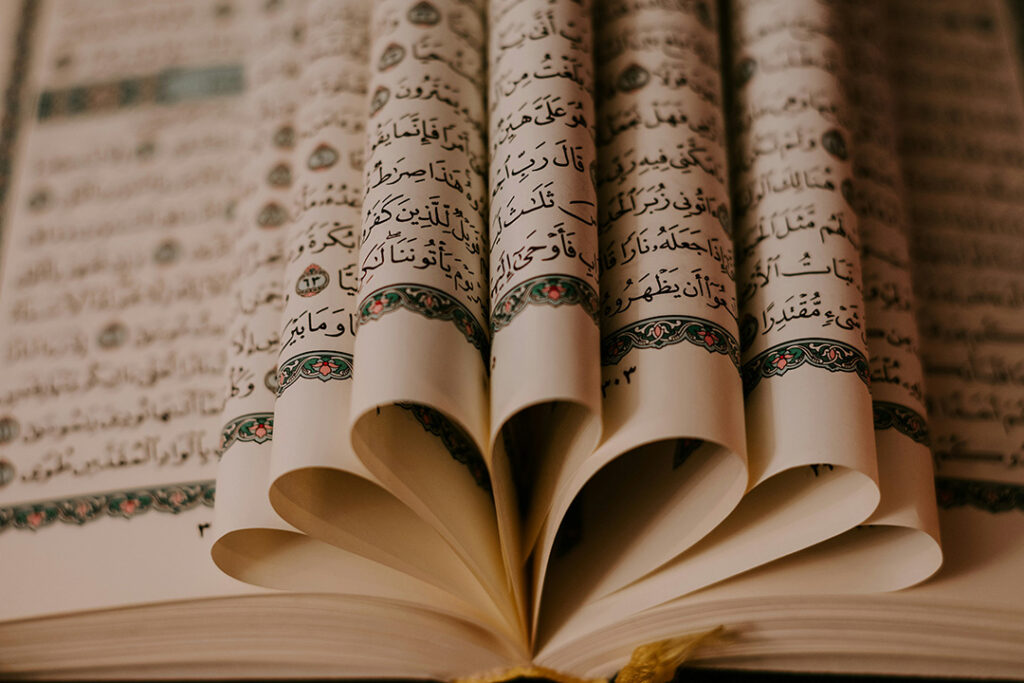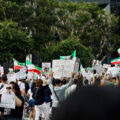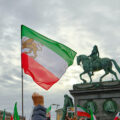Quran burning protests in Europe: Democratic freedom or moral violation?
Quran burning protests in Europe: Democratic freedom or moral violation?
As Quran burning protests appear across Europe, tensions between freedom of expression and other social principles are becoming increasingly pronounced.
Quran burnings throughout Europe
Several European countries grapple with Quran burnings, a controversial issue sparking debates around the boundaries of freedom of expression. Quran burnings are often used as a form of protest against Islam or some aspect of the religion.[1] After a series of such Quran burning protests, Denmark passed a law prohibiting the “improper treatment” of religious texts.[2] Apart from this, Quran burnings in Sweden have caused significant tensions between Sweden and Muslim-majority countries, where the book is considered sacred.
Like Sweden and Denmark, the Netherlands also faces instances of Quran burning and subsequent protests. A recent demonstration by anti-Islam organisation Pegida, for example, triggered a violent counter-demonstration in Arnhem. Pegida leader Edwin Wagensveld received permission from the municipality to stage a Quran burning protest in the city. In response, a mosque organisation called for a counter-demonstration. This resulted in disorder, with Wagensveld being attacked by a counter-protester.[3]
Democratic freedom
Quran burnings are often employed as a radical act of demonstration. The burning by Pegida, for instance, was in protest against Arnhem’s decision to allow municipal enforcement officers to wear headscarves.[4] While the mayor of Arnhem disapproved of the Quran burning, he defended the right to demonstrate, arguing that it is essential to the functioning of a democracy.[5]
Those who defend the right to burn Qurans usually refer to the democratic principle of freedom of expression. Freedom of expression facilitates the free flow of information, ideas, and opinions in a society. This open discourse is essential to democratic dialogue. Some may argue that prohibiting Quran burnings stifles certain ideas and could lead to censorship.[6]
Banning the burning of Qurans
Freedom of expression is a fundamental democratic right, but it is not unlimited. There are various reasons why people might support a ban on Quran burnings. To name a few:
- Quran burning protests come into conflict with the religious sensibilities of Muslim believers. Muslims are likely to perceive this act of demonstration as blasphemous or offensive, as they consider the Quran to be the literal word of God.[7] Although blasphemy is criminalised in some states, most European countries no longer have blasphemy laws.[8]
- Another possible reason for prohibiting Quran burnings is safeguarding national security. Denmark introduced a ban on Quran burnings because of national security concerns. A series of burnings escalated tensions within the country and resulted in an increased risk of terrorist attacks. Apart from this, these incidents had external effects by contributing to tensions with Muslim-majority countries. Protesters in Iraq, for example, attempted to storm Denmark’s embassy in Baghdad. In response to the deteriorating security situation, Denmark eventually prohibited Quran-burning protests.[9]
- A related consideration refers to international relations and diplomacy. Quran burnings in Sweden considerably strained its relationship with Turkey. Turkey decided to block Sweden’s NATO membership for over a year because its legal framework allows for Quran burning protests.[10] For this and other reasons, the Swedish government has considered a ban on this form of demonstration.[11]
- Some governments may consider banning Quran burnings in order to resist hate[12] and maintain public order. One could argue that Quran burnings count as hate speech, which involves the public incitement of violence or hatred on the basis of a characteristic like religion.[13] Local mosque organisations and members of the city council of Arnhem advocated for a ban, asserting that Quran burnings are a hateful act that threatens social stability.[14]
- People might defend a ban on Quran burnings to protect Muslim minorities from oppression and inequality. Muslims often face racism and discrimination because they tend to be associated with negative perceptions. Additionally, the systemic disadvantages they face are often perpetuated by negative stereotypes and ideas. Some may argue that Quran burnings contribute to negative perceptions and reinforce the oppression experienced by Muslims.
- Finally, it can be argued that Quran burnings are at odds with the moral imperative for equal respect. By degrading and threatening Muslims, Quran burnings signal a message that denies their equal moral worth. In this way, these burnings undermine fundamental principles of equal respect and recognition.[15]
A clash of freedoms
Despite potential reasons for prohibiting the protests, it seems unlikely that the Dutch government will implement such a ban. Politicians in the Netherlands condemn Quran burnings, stressing that they are morally reprehensible. Nevertheless, they defend freedom of expression as a legal principle that is essential to democracy.[16]
The issue of Quran burnings shows that there is a tension between freedom of expression and freedom of religion. The act of burning a Quran is often thought to represent the democratic right to freely express thoughts and opinions. At the same time, it attacks the rights of Muslim believers, arguably infringing on their freedom of religion. While in practice freedom of expression is often given priority over freedom of religion, both are fundamental democratic freedoms. Balancing these two important principles poses a considerable challenge for societies.[17]
Want to learn more about similar topics? Explore the EARS Dashboard
Sources
[1] Why are Sweden and Denmark having a crisis over the Koran?
[2] Denmark passes law to ban Quran burnings
[3] Meerdere agenten gewond: ongeregeldheden bij voorgenomen koranverbranding
[4] Pegida kondigt koranverbranding in Arnhem aan
[5] Moskeebesturen onthutst over uitblijven van verbod op koranverbranding in Arnhem: ‘Dit is haatzaaierij’
[6] Media Freedom as a Fundamental Right
[7] Why are Sweden and Denmark having a crisis over the Koran?
[8] Quran burning: How much blasphemy is allowed in Europe?.
[9] Denmark Moves to Ban Quran Burnings After Muslim Outrage
[10] Erdogan: zonder respect voor Turkije hoeft Zweden niet te rekenen op lidmaatschap NAVO
[11] Sweden and Denmark consider ban on Quran-burning protests as security fears rise
[12] Combating hate speech and hate crime
[13] The reason Sweden allows Quran burning despite international anger
[14] Moskeebesturen onthutst over uitblijven van verbod op koranverbranding in Arnhem: ‘Dit is haatzaaierij’
[16] Verbod op koranverbranding maakt weinig kans in Tweede Kamer
[17] Moskeeën willen verbod op koranverbranding om ‘religieuze vrede’ te beschermen






